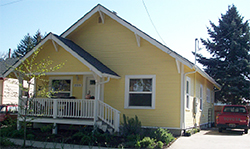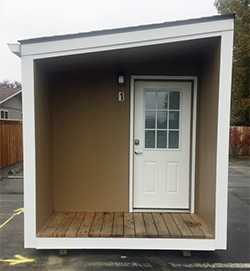We’re working on reducing homelessness, and making housing more affordable and more sustainable.
We collaborate with other organizations in our community that are working toward our vision: All residents have access to affordable housing options. Housing is energy efficient, provides a healthy living environment, and reduces waste through recycling and preservation; and all new construction minimizes impacts on our resources and environment.
PROJECTS & EVENTS
Sustainable Housing

We’re working to reduce residential energy and water use in our community, promoting cutting-edge practices to retrofit existing housing. These changes are helping homeowners save on their utility bills, while making their homes more comfortable.
Housing for Everyone

We provide networking opportunities for volunteers and local organizations that are working toward housing for everyone. Our priorities are promoting affordable housing, as well as shelter for those in our community who are currently without housing.

